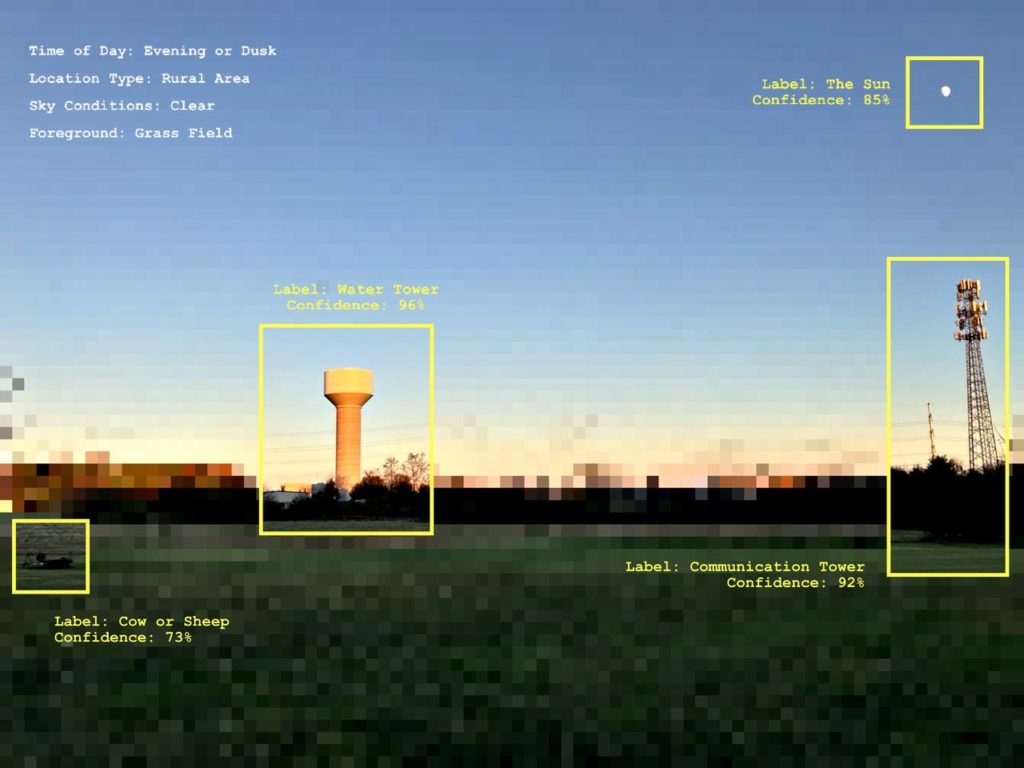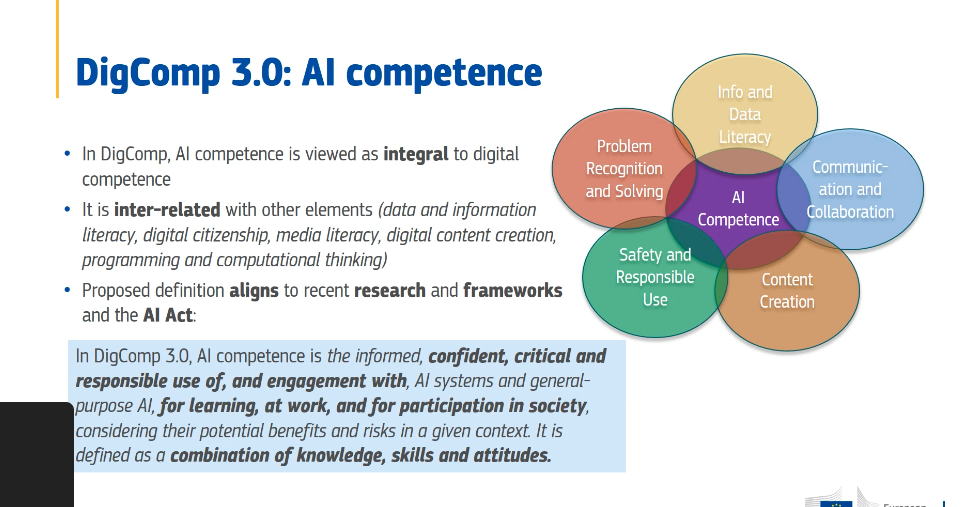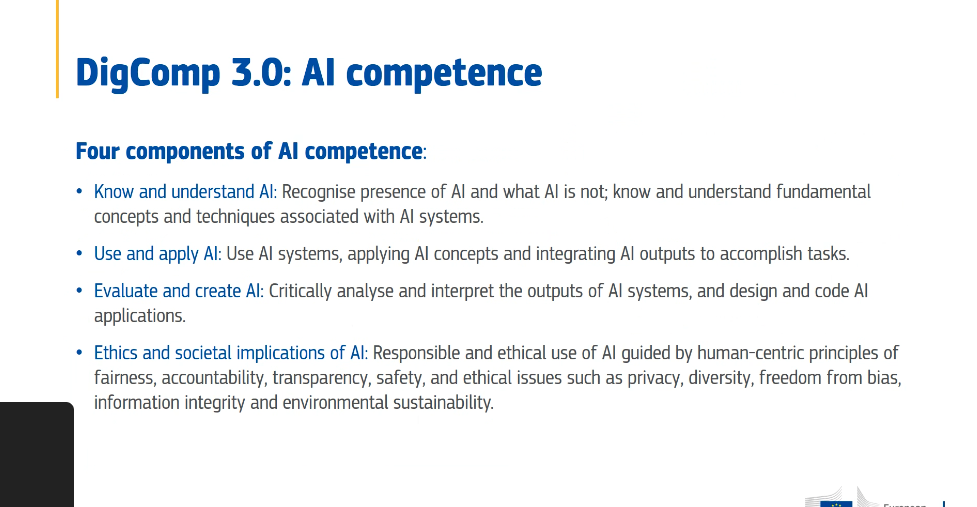
I guess many of those who access this website or who are subscribed to our weekly newsletter will know about DigCompEdu, the framework of competences for teachers and trainers in using digital technology for teaching and learning. You may not be so au fait with DigComp - the Framework dating from 2013 which started it all up.
DigComp provides a common framework to assist European citizens and workforce in self-evaluating their skills, setting learning goals, identifying training opportunities, and reaching more and better career opportunities.
DigComp 2.0 defines key digital competences across 5 areas:
- Information and data literacy (such as the ability to explain information needs; locate, retrieve, store and manage digital data, content and information, or to assess the relevance of the source and the validity of its content).
- Communication and collaboration (the ability to interact, communicate and collaborate with others through the use of digital technologies, taking into account cultural and generational diversity, to manage digital identity and online reputation and take part in society through the use of digital public and private services).
- Digital content creation (the ability to create, edit and improve digital content and abide by licensing and copyright, or to revise and integrate information and provide instructions to a computer system or device).
- Safety (like the ability to ensure that personal and work devices are protected, including personal and work-related data and sensitive information in digital environments, or to understand how technology impacts mental and physical wellbeing and a general awareness of the environmental impact of digital).
- Problem solving (the ability to identify needs and problems and resolve them in different digital environments, the ability to use digital tools to improve processes, services and products, and keep up to date with the evolution of technology).
Now, the JRC have launched a consultation on the development of DigComp 3.0. Probably the biggest change is to account for the rapid development and use of Generative AI. At a recent online consultation webinar they presented their initial thinking on AI competence.


Following the online meetings ths JRC has invited further feedback, both general feedback and In-depth review.
General feedback: https://ec.europa.eu/eusurvey/runner/DigComp3_External_Feedback
In-depth review, for those who want to make a more detailed review:https://ec.europa.eu/eusurvey/runner/DigComp3_In_Depth
Inside both survey links you can download the background document and the presentation from the online meeting.
They explain that inside the in-depth review survey link you will find a copy of an Excel file containing the detailed proficiency descriptions for the 21 competences, the learning outcomes, and the proposal for integrating AI into the 21 competences. You should review the instructions in the first sheet of this workbook, and upload your completed Excel review into the same survey link, when it is completed.
For the in-depth review, please feel free to review only the parts that you wish to – there is no need to review all of the material unless you wish to.
Finally they ask that you please bear in mind that the status of the material is draft or work-in-progress, so you should not use it as a basis for projects or initiatives. The final version will be available at the end of 2025.
It would be great to provide some feedback from the point of vocational education and training. The issue of a revised version of DigCompEdu was raised at the online consultation meeting and it seems that this issue is still being considered by the European Commission.
About the Image
'Moon over Fields' is part of the artist's series, 'Algorithmic Encounters': By overlaying AI-generated annotations onto everyday scenes, this series uncovers hidden layers of meaning, biases, and interpretations crafted by algorithms. It transforms the mundane into sites of dialogue, inviting reflection on how algorithms shape our understanding of the world.
